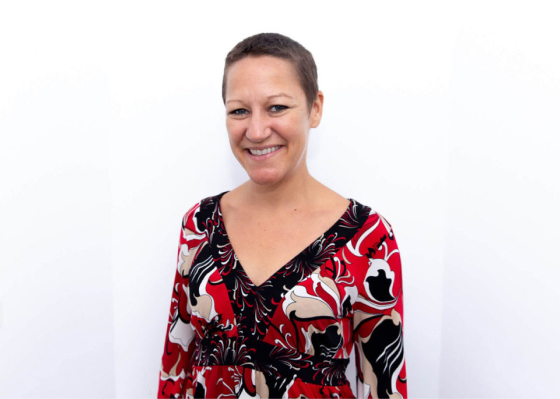The life of a startup is exciting but also tough and this past year has seen a combination of challenges. Many tech firms’ valuations have been radically reduced and we have a more difficult funding climate with investors having more strenuous criteria in the startups they back.
Many founders are needing to change plans quickly, look at longer runways and make really difficult decisions on staffing. All the while working harder than ever to raise funds. This can create real pressure and have a negative impact on mental health.
So how can startups support their mental health during challenging times? We spoke to a leading psychologist working with startups and several successful founders in our network to get their top tips and advice.
Dr Alison McClymont is a Chartered Psychologist at The Soke, a mental health and wellness clinic that has a programme specifically supporting startup founders. She describes the situation many are facing.
“All of the external factors facing startups add up to extreme levels of complexity and unforeseen conflicting priorities. Being a founder can be one of the toughest jobs going, having to make difficult decisions at speed on matters that can make or break a company like reducing costs, resetting investor expectations, and building a unified culture and a competitive performance philosophy while still keeping employees engaged and focused towards the end game.”
It all adds up to a significant burden with the extra responsibilities founders have, which McClymont describes as “feeling like the weight of the world on your shoulders. High levels of anxiety are a constant, and combined with a 24×7 schedule can manifest into burnout.”

The signs of burnout
Burnout is certainly becoming common in our society. The life of a startup means it looks more difficult to avoid than other professions, but the very real physiological impact can have a damaging impact.
According to Oliver Osgood, co-founder of Masterplant, an emerging European cannabis platform: “It’s important to understand that burnout is not just a state of mind. It’s a natural and complex phenomenon that can seriously affect your mental and physical health.”
McClymont says: “When the body is exposed to consistently high levels of adrenaline, it is converted to the stress hormone- cortisol. When cortisol is consistently highly elevated this can create a slew of physical complaints such as digestive issues, sleep disturbance, decreased immunity, and skin disorders. This also can create mental health concerns such as a feeling of doom or dread, insomnia, depression, or in extreme circumstances panic attacks.”
So how to respond to these tell tale signs?
Ensure you have enough rest
Sleep is so often the victim in the busy world of a fundraising startup, with at least two jobs, running a growing business and chasing investment. Yet without enough rest it is simply impossible to remain on top of your game to manage multiple spinning plates. According to McClymont: “The key to managing this is focusing on healthy lifestyle adaptations- sleep is key to brain function and is our body’s main defence against stress.”
She continues: “Maintaining a healthy sleep schedule should be as important to you as your next investor meeting- in order to perform at your best, your brain needs to be working at optimal capacity.”
This is something author and businesswoman Arianna Huffington agrees with. She famously described it thus: “The truth is three-quarters of startups fail and if founders got more sleep they’d have a better chance of succeeding.”
Exercise when and where you can
Incorporating exercise into the busy life of a founder may seem inconvenient, but the long-term and short-term benefits cannot be replaced by any drug. According to McClymont: “Exercise has been shown to raise “happy hormones” and can combat depression and anxiety.”
This is something Osgood agrees with. “Exercising regularly can be an effective way to strengthen your body and mind while avoiding burnout. Physical activity reduces stress hormones while stimulating endorphins that make you feel good.”

This doesn’t have to be high intensity. Olivia Sibony is AIN’s Head of Impact and co-founder of Impact Amplified. She is a big believer in taking the time to be outside while you exercise and enjoying the outside. “Taking time to go outside is key: ideally that would be time in silence, focusing on the walk, but if you struggle to make that commitment to yourself, you could book in a call with a friend and both commit to walking outside while you catch up.”
McClymont says: “Exercise outside has the added benefit of increasing vitamin D, try to get away from the desk for a 30-minute walk every day and book this with yourself in the same way you would a meeting.”
Create some headspace by focusing only on the things you can change
Alongside the things we can do to ensure the body and mind are getting enough rest and exercise, founders can look to incorporate some mindfulness techniques into their day to day lives. Retraining the mind to adapt to the multiple challenges they face. Facing a seemingly overwhelming to do list it is worth taking the time to understand what you can and can’t change. Especially given the huge uncertainties of fundraising in a more challenging climate.

According to Thomas Vosper founder of AI-driven shopping platform aisle 3: “It’s really hard to think about the tactics to cope with uncertainty in startups. Perhaps firstly, you need to recognise that not all startups are equal. Some seem to have a relatively smoother time, with lots of funding and a large team whilst others are the underdogs, seemingly forever under-capitalised yet still always fighting and always moving forward.”
McClymont thinks it in important to acknowledge and recognise your lack of agency in certain situations. She says: “Focus on the things you can change and not those you can’t- you can do this through mindfulness practices ( there are lots of great apps to help with this) and creating “ electronic diet hours” where you do not access emails or messages for scheduled periods during the day.”
She continues: “Research shows that constant “ blue light” activity makes it challenging for the brain to switch off and can create a feeling of stress and insomnia. These hours also allow you to step back and focus on what actually needs to be done today and what can wait until tomorrow- organisation is key to maintaining a feeling of control and agency over a loaded work schedule.”
Instill in your team a supportive culture of openness
Being a startup founder and leader can of course be a lonely business, but it is important to create the right supportive environment in your team. This will help everyone cope with the inevitable uncertainty of the startup world. According to Sibony: “It’s a tough balance as a leader where you do need to show some strength and confidence, but at the same time, talking openly about some challenges or open questions will enable you to lead by example and let others do the same.”
Vosper also is a strong believer in the importance of creating a culture of openness for both founder and team. “Personally, I’ve always found it important to be very direct and honest with the team. This is a difficult conversation to have, but one that shows who the fighters are that love the business/mission and will support you through rocky moments.”
In summary we are in a climate of a lot of uncertainty with startups more under pressure than ever before. To cope with a high pressure workload and new funding challenges they should look at supporting their mental health through ensuring they get enough rest, exercise when and where they can, understand what they can and can’t change and instill a positive and supportive culture in their teams.
If you’re looking for an angel investor to help fund your business, then the Angel Investment Network can help. Sign up to pitch your business to investors all over the world

